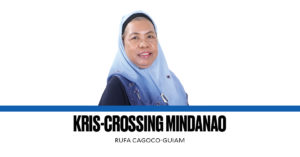I spent some time today amusing myself over the social media antics of the Facebook page of former Pasig mayor Bobby Eusebio. The page administrator probably got more social media engagement than they bargained for when they decided to take an indirect swipe at current Mayor Vico Sotto for the relative lack of Christmas decor in Pasig City. “Pasig, ano na ang nangyari? Walang parol?” Eusebio’s page asked on Facebook last week.
Sotto, whose efforts toward transparency have been widely praised, was immediately defended by citizens. They point out that Christmas parols are less essential than the current government’s annual Pamaskong Handog, a bag of goodies distributed to each home in each barangay for Christmas; residents comment that before Sotto’s election to office, only those with ties to local government got Christmas goodies from the local government unit (LGU). They also point out the reforms made in the city’s bidding process and resource allocation. There may not be a big budget for holiday decor, but among residents there seems to be widespread confidence that the city budget is being put to good use—not being squirreled away in government contracts or being distributed among cronies waiting for their “kickback.” To see such sweeping approval of an officer in position is rare. Sotto’s social media updates for transparency and firm stance against corruption have done for him what good looks and celebrity parents alone cannot achieve—accolades for good government and his city’s trust.
It’s a pity how the ineffective putdown on Eusebio’s page smacks strongly of the kind of governance we’ve gotten used to: performative gestures and a frustrating focus on nonessentials. Beyond the performativeness there exists a lack of desire for systemic overhaul because it’s uncomfortable, disadvantageous for the powerful few and their cronies, and too ambitious to be attempted, and comes at the cost of personal profit. Sound familiar? Remember how the national government was so keen on calling frontliners heroes and were set on dedicating the budget for a memorial, but apparently deaf when it came to calls for improved health worker compensation and benefits and risk allowances? If you know a health care worker, you may want to check in on them about the risk allowances they’ve received this pandemic. No amount of bells and whistles can substitute for good governance that recognizes people’s needs.
Funny as the whole Eusebio debacle may be, it does put paid to the claim that Filipinos will never be satisfied, and will never appreciate the good things done by government. As the thousands-strong social media engagement will show, Filipinos actually are capable of gratitude and of recognizing good service when it’s rendered. Sotto’s defenders point out the ease of processing documents at the city hall, the more reasonable requirements for scholars, the ease of claiming the LGU’s cash “ayuda” and other handouts, and other projects and reforms, the effects of which were tangible to residents. They also acknowledge how Sotto veers away from “trapo” moves by making sure no politician’s name, even his own, is appended to public projects and giveaways.
This isn’t to paint Sotto as some sort of hero or to villainize Eusebio. To regress to personality politics is to miss the point. The incident for me serves as a nice reminder of the possibilities that we can look forward to next year if we take the elections seriously, and if we raise our standards for good governance. Surprisingly, there are leaders out there who will rise to meet them, and good workers—silent faces in government, but incorruptible—who will do the same.
This may well be the best gift that Sotto, and other LGU officials like him, can give to those outside of their jurisdictions: a hope that there may be good leaders yet. When Sotto takes the high road, as he has so frequently done, the behavior used to be seen as an anomaly, a surprise rather than the standard; but now that the city has been encouraged to denormalize corruption, the impact of this consistent anti-corruption stance on public trust is clear. Hopefully people’s expectations of what politicians can be will also follow for national positions. Which of our national candidates have no record of corruption? On the other hand, which among them made the “switch to politics” and opted out of other professions because, as Sandro Marcos has now infamously pointed out, there’s money in the former? As has been pointed out elsewhere, it may be that this time around, we don’t need to look for the lesser evil to decide who to vote for. As someone whose partner is a resident, seeing change on a small scale in Pasig City has been rewarding. Let’s dare to hope that this change — against corruption, toward good governance — may be possible on a larger scale. Let’s see. Hope springs; “umaagos ang pag-asa.”


